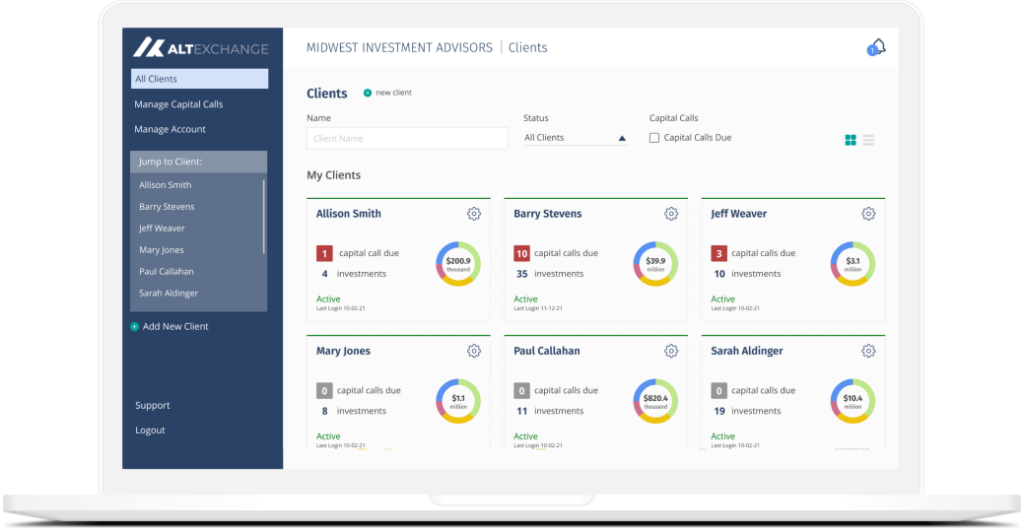While alternative investments were once only available to accredited investors, access is expanding. Asset managers and new technology are helping retail investors more easily access alternative investments, with hopes of increased diversification and enhanced returns during market volatility and surging inflation.
With access to alternatives increasing, as well as demand from investors, many financial advisors are broadening their client portfolios.

Benefits of Alternative Investments
Alternative investments are becoming increasingly popular as investors look for ways to diversify their portfolios.
When it comes to financial planning, one of the most important things advisors can do for their clients is help them diversify their investment portfolios. One of the main reasons alternative investments are so popular right now is because they offer portfolio diversification that is not available with traditional investments. By including alternative investments in your clients’ portfolio, you can help reduce their risk exposure and improve overall returns.
In addition, alternatives can be a great way to protect your clients’ portfolios during times of recession and inflation as many alts outperform traditional investments during these times.
Accessing Alternative Investments
Alternative assets have long been the domain of ultra-wealthy and institutional investors, guarded by astronomical investment minimums, hefty fee structures and lack of liquidity.
Many advisors were not willing to offer alternatives, due to a lack of education surrounding alts in addition to the complexities that come with. But it’s not just advisors that have these problems: Most investors report similar challenges when trying to invest in this space, including the need for client education, research, and due diligence efforts.
But new advisor technology platforms and partnerships have made alternatives considerably more accessible, just in time for heightened inflation, rising interest rates and volatile markets.
In fact, 90% of advisors plan to increase allocations to alternatives within the next two years, according to new research.

Financial advisors are finding themselves with more products to offer their clients as asset managers are expanding market access and wealth technology providers continue to innovate. Advisors can take advantage of alternative platforms, such as iCapital or CAIS, which help make alts products more widely accessible.
Managing Alternative Investments
But as access to alternative investments increases, so does complexity.
Most private investments require a ton of paperwork— in addition to complexity and fragmentation, calling for more advanced aggregation services like AltExchange.
Offering alternative investments is only the first step for advisors. It’s important to note that as interest in alternatives increases, so does complexity and fragmentation, calling for more advanced aggregation services like AltExchange.
AltExchange eliminates common pain points including fragmentation, unstructured data, scattered documents, limited performance visibility, inability to track and bill on alternatives, and more. With AltExchange, advisors can easily offer, track, report, and bill on alternative investments.

If you’re an advisor offering or planning to offer alternative investments and are looking for a scalable, streamlined solution, please get in touch.